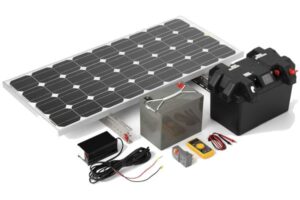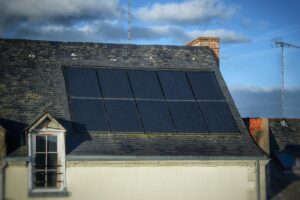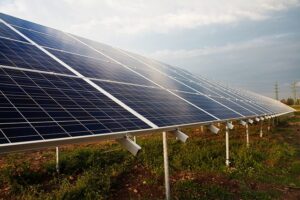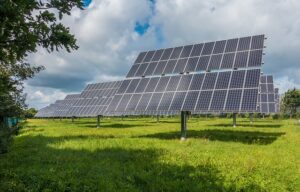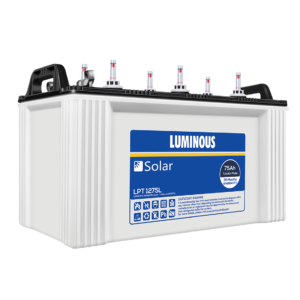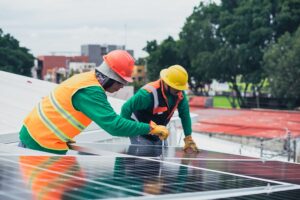The Top 9+ Benefits of Solar Energy

Our sun is like Earth’s big energy battery. It’s super strong and we’ve learned a lot about it. It’s a big deal in our switch to cleaner energy.
Solar power, like other clean energies, helps protect our planet from getting too hot by using sunlight instead of dirty stuff like coal. But what makes solar special compared to wind or water power? Well, here are 9+ simple reasons that show why our sun is awesome for giving us energy every day.
#1. A Clean Source of Power
Solar energy is clean energy. It means when we use sunlight to make power, we don’t make any mess.
Other ways of making power, like burning coal or gas, can make dirty stuff that hurts the environment.
But solar power doesn’t do that.
It keeps the air, water, and land clean and safe for everyone.
#2. Lower Energy Bills
The average American household spends about $111 on electricity every month. Stretch that to year and you’re forking out over $1,300.
What if we told you could bring that bill down to zero?
Well, with solar energy, it’s doable. Instead of relying solely on the electric company, you become your own power producer with solar panels on your roof. These panels soak up sunlight during the day, turning it into electricity for your home. As a result, you use less energy from the grid, which means smaller bills.
#3. Renewable
Imagine a never-ending supply of energy that keeps coming back. That’s what renewable energy means. And solar power is a perfect example. Instead of using up stuff like coal or oil, which will one day be gone, we can rely on the sun for endless energy.
There’s plenty of sunlight to go around.
Every day, the sun gives us lots of energy, and we can catch it with solar panels. The best part? We can use it again and again without worry. That’s why solar power is great for the future. With each sunny day, we can power our homes and businesses without hurting the Earth.
Even though factors like our atmosphere and weather reduce the amount of sunlight we receive, it’s still more than enough. In fact, if we captured just a small fraction 6% of the solar energy that reaches us, we could power everything humanity needs. It’s a win-win for everyone!
#4. Good for the Economy
The solar power industry makes significant contributions to the American economy, generating about $7 billion annually.
When you decide to install solar panels on their homes or businesses, you often hire local workers to do the job and the solar panel making companies also recruit new people. These workers earn wages, which they then spend in their communities on things like groceries, clothes, and entertainment. This boosts local businesses and creates even more job opportunities.
So when you decide to switch to solar power, you’re making a contribution to the economy. Your money will help to create a new job.
#5. Increases Your Home’s Value
Installing solar panels on your home can actually increase its value. When you have solar panels, your home becomes more attractive to potential buyers because it’s cheaper to run and better for the environment.
Having solar panels means you’ll spend less money on electricity bills, which is a big selling point for buyers. They’ll see that your home is more affordable to live in, which can make it more desirable.
People are increasingly interested in eco-friendly features like solar panels. They know that solar energy is clean and sustainable, so having it already set up on your home can be a big selling point.
Studies have shown that homes with solar panels can sell for more money than homes without them. So, not only are you saving money on electricity while you live in your home, but you’re also likely to make more money when you sell it. It’s a win-win situation all around.
#6. Job creation
Choosing solar energy doesn’t just benefit the environment; it also creates job opportunities. As more people and businesses adopt solar power, the demand for solar installations, maintenance, and other related services increases.
When someone decides to go solar, they often hire local workers to install the solar panels on their property. These workers can include solar panel installers, electricians, and technicians. Additionally, as the solar industry grows, there’s a need for research and development, manufacturing, sales, and customer service roles.
These jobs can range from entry-level positions to highly skilled technical roles, providing opportunities for people with various backgrounds and skill sets.
#7. Low carbon emissions
Solar energy systems use photovoltaic (PV) cells to convert sunlight into electricity, which means that they don’t produce any harmful emissions during the energy generation process.
This is a stark contrast to traditional fossil fuels, such as coal and oil, which are major contributors to global carbon emissions and air pollution.
In addition to carbon emissions, fossil fuel combustion also produces other air pollutants, such as sulfur dioxide, nitrogen oxides, and particulate matter, which can have negative health impacts on humans and the environment.
#8. Low Maintenance Costs
Those solar panels we love do lose a bit of their power over time, usually after 20-25 years. But don’t stress!
Taking care of them is pretty simple. It’s like looking after any other electrical stuff, with just a bit of extra cleaning now and then.
That’s pretty much all it takes to keep them ticking along nicely. So, even though they might lose a bit of their spark as they get older, keeping them happy is no biggie
#9. Remote power generation
Sunlight reaches every corner of the Earth, even in places with no infrastructure, is a big deal. Even in remote or rural areas, where getting electricity is tough, the sun can still be tapped into for power.
Not only that, but solar energy can be used on a small scale too, like when people put solar panels on their roofs. That’s something not all renewable energy sources can do as easily.
Once sunlight is turned into electricity, it’s easy to move around. This means we can make lots of power in big solar farms, especially in places like the equator where the sun shines bright.
Recommended Reading :
- Best Tips on Choosing Solar Panel Wattage
- Things To Consider If You Are Planning To Make Your Home Solar Powered
- All You Need to Know About Solar Inverters
- Reasons You Need a Professional for Rooftop Solar Power Installation
- Reasons Why We Need to Ditch Fossil Fuels
#10. Benefits to the grid
Energy produced by photovoltaic systems is mainly generated during the middle of the day.
Thanks to larger, more efficient storage systems, the gap between energy demand and solar energy production can be managed better. Solar energy, especially when generated using photovoltaic technology, can be easily integrated with the electricity grid.
This integration allows excess energy produced by individuals and businesses to be sent to the grid, leading to savings and additional income.
Importantly, in areas like Africa where traditional electrical networks may not reach, solar energy provides immediate access to power for communities, improving living standards and supporting economic development.
Conclusion:
Solar power is good for the environment and can help you spend less on powering your home and businesses. It also boosts economic growth and makes your property more valuable.
To reap these benefits of solar energy, you just need to do one thing: go solar!
While we’re still on this green vibe, here are other green technology developments of the future.

